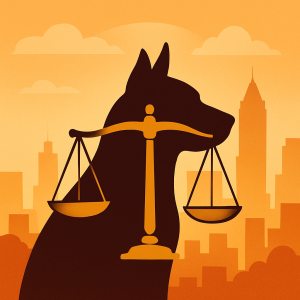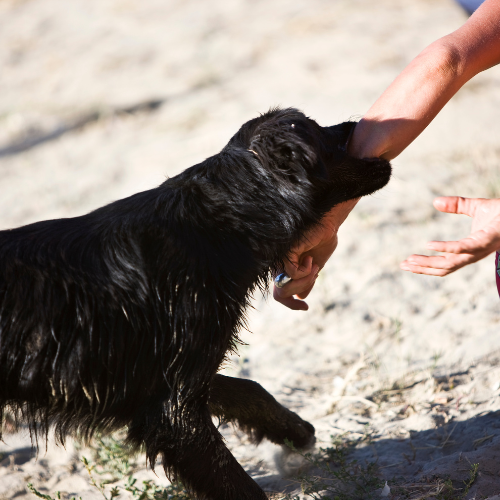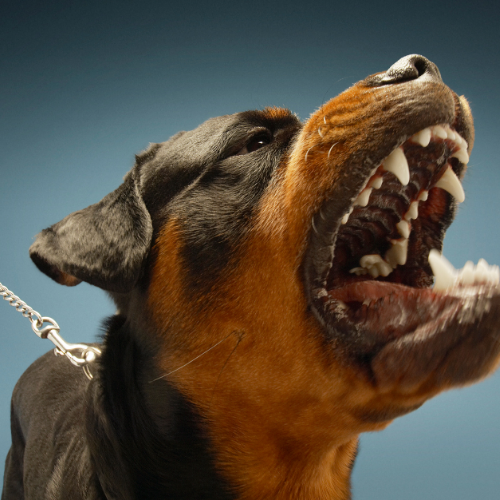Dog Bite Ordinances In Atlanta
Atlanta’s dog bite ordinances aren’t just legal jargon – they’re rules that protect residents and visitors. In this post we’ll bring up Atlanta’s dog bite ordinances twice to emphasize the topic and help searchers find the answers they need. Whether you’re a dog owner in Atlanta or a victim of a recent bite, understanding the dog bite laws in Atlanta helps you protect your rights and avoid costly mistakes.
Understanding Georgia Dog Bite Liability
Georgia’s civil code holds animal owners accountable when negligence leads to injuries. Under O.C.G.A. § 51‑2‑7, the owner of a vicious or dangerous animal who allows the animal to roam is liable for injuries caused by the animal. The statute notes that proof of vicious propensity can be shown if an ordinance requires the dog to be restrained and the animal was off‑leash when the attack occurred. In other words, failing to obey leash laws can become strong evidence of negligence. Victims typically have two years from the date of injury to file a lawsuit.
Georgia also defines dangerous and vicious dogs. A dangerous dog is one that causes a significant puncture wound, aggressively attacks in a way that makes someone fear an imminent serious injury, or kills a pet while off the owner’s property. A vicious dog is one that actually inflicts a serious injury on a person or causes serious injury when a person tries to escape. These classifications affect how owners must restrain their pets and carry liability insurance.
Evidence Checklist After a Dog Bite
After a dog bite, gathering evidence quickly helps strengthen your claim. Below is a simple table summarizing key items:
| Evidence Needed | Purpose |
|---|---|
| Photographs of injuries | Document the severity and location of wounds |
| Medical records and bills | Show treatment costs and long‑term effects |
| Incident report from Animal Services or police | Provide official documentation of the attack |
| Witness statements | Confirm what happened and whether the dog was restrained |
| Proof that the dog was off‑leash or classified as dangerous | Link the incident to ordinance violations |
City of Atlanta Leash Laws and Off‑Leash Areas
Atlanta’s parks department reminds pet owners that all dogs must be on a leash when visiting city parks, trails or public spaces that are not designated off‑leash areas. Anyone caught with a dog off‑leash in these areas can be cited by Atlanta Police. The code also requires owners to clean up after pets and keep animals within sight and under voice control. During festivals, pets may be banned altogether.
Designated off‑leash dog parks have strict rules. They must be fenced with double‑gated entrances, and owners are responsible for their dogs’ behavior. No more than three dogs per person are allowed, dogs must wear collars with ID tags, and puppies under 16 weeks or dogs in heat are not permitted. Owners must clean up after their dogs and remove dogs that bark continually or show aggression. Violations of these rules can lead to fines and may help establish negligence if an attack occurs.
Dangerous and Vicious Dog Classifications
The state’s Responsible Dog Ownership Law (Article 2 of Chapter 8) outlines what it means for a dog to be classified as dangerous or vicious. A dangerous dog causes a puncture wound without serious injury, acts aggressively so that someone reasonably fears harm, or kills a pet animal off the owner’s property. A vicious dog inflicts serious injury or causes serious injury when someone tries to get away. Once a dog is classified, the owner must register the animal, confine it securely, post warning signs, and carry at least $50,000 in liability insurance.
In Atlanta, local ordinances reinforce these state requirements by mandating that dogs stay leashed in public and imposing stricter rules on off‑leash areas. Failure to follow these rules can support a negligence claim because the state statute deems a violation of leash ordinances sufficient evidence of a dog’s dangerous propensity.
Table: Dangerous vs. Vicious Dogs (Georgia Law)
| Classification | Key Characteristics | Owner Obligations |
|---|---|---|
| Dangerous Dog | Causes a significant puncture wound without serious injury, aggressively threatens a person, or kills a pet while off owner’s property | Register dog with county, confine in secure enclosure, post warning signs, and comply with leash laws |
| Vicious Dog | Inflicts serious injury on a person or causes serious injury when a person tries to flee | Same as above, plus obtain at least $50,000 in liability insurance and microchip the dog |
What To Do After a Dog Bite in Atlanta
- Seek medical care immediately. Even minor bites can lead to infections. Follow your doctor’s recommendations and keep copies of all records.
- Report the incident to Fulton County Animal Services or the Atlanta Police Department. An official report creates a record of the attack and may lead to the dog being quarantined.
- Document everything. Take photos of your injuries, the location of the attack, and the dog, if possible. Collect contact information for the dog’s owner and any witnesses.
- Confirm leash law violations. Note whether the dog was loose or in an off‑leash area. Violating the City of Atlanta’s leash requirements can help establish the owner’s negligence.
- Contact an experienced attorney. An attorney who focuses on dog bite injuries can help you understand your rights, gather evidence, and negotiate with insurers. The lawyers at Humphrey & Ballard Law handle dog bite claims throughout metro Atlanta. You can learn more about their services by visiting their Atlanta dog bite injury attorneys page.
Compensation Available in Georgia Dog Bite Cases
Victims of dog bites may be eligible for several categories of damages:
- Medical expenses: Emergency treatment, surgery, medications, and ongoing therapy.
- Lost income: Wages lost because you couldn’t work during recovery.
- Pain and suffering: Physical pain, emotional distress, and trauma from the attack.
- Permanent scarring or disability: Additional compensation when a bite leaves lasting disfigurement or impairment.
- Punitive damages: Possible in rare cases where the owner’s conduct was egregious, such as knowingly harboring a vicious dog.
Internal and External Resources
For more insight on preventing animal attacks, you can read the firm’s article on how dog sitting can increase the chances of being bitten. If you’re unsure what steps to take immediately after an incident, their guide on what to do if bitten by a dog offers practical advice. These resources complement the information in this post and are part of Humphrey & Ballard’s commitment to educating the community.
To review the official legal texts discussed here, see O.C.G.A. § 51‑2‑7 on owner liability for vicious or dangerous animals, O.C.G.A. § 4‑8‑21 for definitions of dangerous and vicious dogs, and the City of Atlanta’s Leash Up ATL guidelines for public parks. These external references provide authoritative context without promoting other law firms.
FAQ about Atlanta Dog Bite Laws
What constitutes a dangerous dog in Georgia? A dog is classified as dangerous if it causes a significant puncture wound without serious injury, aggressively threatens someone causing them to fear harm, or kills a pet animal while off the owner’s property.
Do Atlanta leash laws apply outside of parks? Yes. While the Leash Up ATL rules focus on city parks, Atlanta’s animal control ordinances require dogs to be restrained in all public spaces unless specifically designated as off‑leash areas.
Can I sue if a dog was on its owner’s property? Liability depends on whether the owner knew the dog was dangerous and failed to secure it. Georgia’s statute makes owners liable if they allow a vicious or dangerous animal to roam and it injures someone.
How long do I have to file a dog bite claim in Georgia? Most personal injury claims, including dog bite cases, must be filed within two years of the incident.
What damages can I recover? Victims may recover medical expenses, lost wages, pain and suffering, and compensation for permanent scars or disabilities. In some cases, punitive damages are possible if the owner acted recklessly or knowingly violated dog control laws.
If you’ve been injured by a dog in Atlanta, remember that local ordinances and state laws are on your side. Speak with an experienced dog bite attorney to protect your rights and explore your options for compensation.



